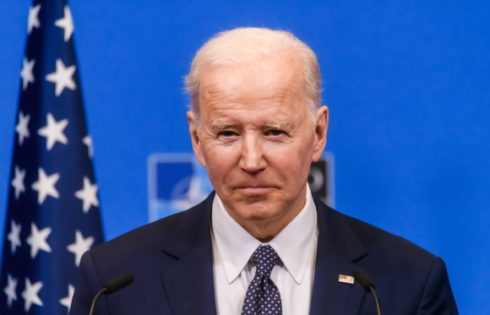
Free speech experts say university must be careful not to suppress speech
University of California Santa Cruz will spend at least $500,000 to combat “hate.”
The money comes from a $7 million pool established by the University of California system.
Phase one funded “culturally congruent support services for students and synchronous and asynchronous training for faculty and staff on Islamophobia, antisemitism and other forms of hate.”
Phase two spending proposals are set to be decided in March, in preparation for the spring quarter and 2024-25 school year. The money will be allocated in the second phase to “mental health and trauma support,” “educational programming” and “leadership training for students, faculty and staff,” according to a university announcement.
Abby Butler, a spokesperson for the university, did not respond to two emailed requests for comment sent in the past three weeks that asked for further information on the program. The College Fix asked what free speech protections would be included in the hate training.
The UC system media team also did not respond to two emailed requests for comment in the past two weeks.
The Fix asked for information on how the rest of the $7 million would be spent and about free speech protections. The Fix contacted Ryan King and the general media team email addresses for comment.
Several free speech experts said universities must be cautious when addressing “hate” and other issues.
UC Santa Cruz needs to be careful to not “try to punish mere expressions of what they see as ‘Islamophobia’ or ‘antisemitism,’” University of California Los Angeles Professor Eugene Volokh told The Fix via email.
The Hoover Institution fellow said, “expression of those views, like of other views, is generally protected exercise of free speech and academic freedom.”
Universities “need to make sure that they don’t stifle – even through means short of punishment – serious discussions of important questions.” Criticism of religions should not be condemned but rather discussed and understood,” said Volokh, a First Amendment expert.
MORE: TPUSA sues SUNY Cortland for denial
As for how the university should go about combating hate speech, Professor Volokh said universities should “protect students from violence and threats, targeted at Muslims and Jews as well as others.”
They should also encourage students to discuss these issues seriously, thoughtfully, and carefully… [and] model serious debate” from all points of views.
The Foundation for Individual Rights and Expression agreed.
Laura Beltz told The Fix general terms used to describe hateful speech may turn out to be protected speech or advocacy that may be offensive only to few others.
Because an already-implemented “intolerance report form” on the UC campuses include these broad terms, Beltz said it “leav[es] students wondering if they’ll be investigated or punished over controversial speech.”
The director of policy reform said the grants could cause similar problems. She believes “they may discourage students from engaging in debate on these issues for fear of punishment.”
“UC leaders should foster an environment in which all viewpoints may be presented and apply policies on misconduct to ensure students can do so safely,” Beltz said.
“To do so, UC can teach students about engaging with others who hold differing viewpoints and can ensure their misconduct policies are applied consistently in a viewpoint-neutral manner.”
MORE: UMich professor wants ‘commonsense’ speech restrictions
IMAGE: Jerome 460/Shutterstock
Like The College Fix on Facebook / Follow us on Twitter






Please join the conversation about our stories on Facebook, Twitter, Instagram, Reddit, MeWe, Rumble, Gab, Minds and Gettr.